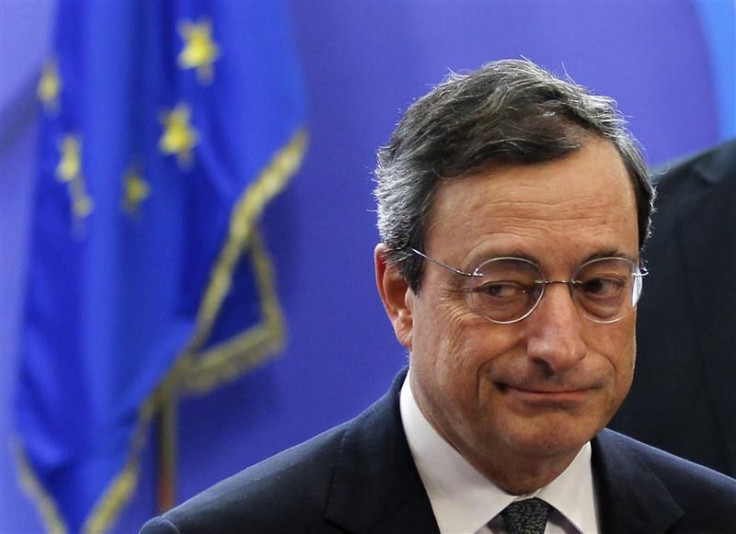ECB Emerges As Less Dovish, More 'Bossy,' Than Thought

The European Central Bank's decision Thursday to leave a key interest rate at 1 percent came with an unusual warning to European governments from the ECB's leader and a disclosure of the central bank's policy inclination that rocked the markets.
After the ECB's rate-setting committee kept the interest rate at 1 percent, ECB President Mario Draghi said central bankers on the rate-setting committee hadn't even discussed the possibility.
We didn't discuss any specific move in interest rates but we did discuss our general monetary policy stance, which we found accommodative in view of an economic outlook that becomes more uncertain, Draghi said during a press conference.
That statement, which indicated the ECB is considerably less dovish than market-watchers had believed, rattled world markets. European equities dove as the euro in which they are quoted rose after the press conference.
But more shocking was Draghi's foray into national fiscal policy. He warned European governments not to take the easier road of increasing taxes in order to bridge budget shortfalls, as Europeans already faced a high level of taxation.
Central bankers generally reserve their comments about fiscal policy to telling politicians not to run large deficits, but it is uncommon for them to instruct national leaders on how to bring down those deficits. Draghi's comments, by logical conclusion, mean the European Central Bank believes governments should impose further austerity on their economies, even at a time when unemployment in the euro area is at record highs and a deepening of the recession in several countries is foreseen this year.
The comments are further notable given the fact a closely contested presidential election in France, scheduled for Sunday, include a current Socialist front-runner who has vowed to increase taxes. Greek legislative elections are also scheduled this weekend.
© Copyright IBTimes 2024. All rights reserved.




















